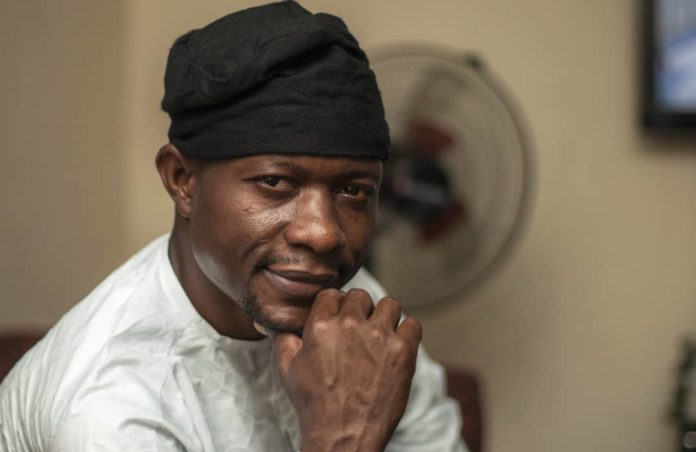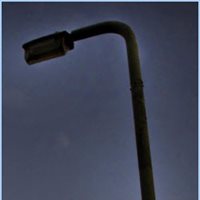By Alex Byanyiko
“Give not that which is holy unto the dogs, neither cast ye your pearls before swine, lest they trample them under their feet, and turn again and rend you.”
It is absolutely inconsequential the religion you profess. The above scripture is a brush on canvas that paints the Nigerian situation without a single strand missing.
Or how can we explain a country that is so gifted with abundant human and natural resources manages to swing on the same circle for over fifty years?
We are quick to blame the corrupt or inept leadership why we wallow in poverty, illiteracy and debilitating diseases. Now tell me who is really to be blamed? Can Nigerians reflect deeply on the scriptural reference above?
The leadership questions in Nigeria really have no answers other than the followers’ complete paradigm shift.
All mankind is fallen, except for the regenerated minds. We all suffer the same vulnerabilities irrespective of race, religion or any other classification that we cast upon ourselves. The simple reason some nations are doing better is because they have politically conscious, self-sacrificing people that insist on getting their political and social institutions working for all without fear or favour. They do not only have instruments of law, they make them functional.
Conversely in Nigeria, we have a followership that has been on slumber and in a fiery dreamland of greed, religious and ethnic sentiments.
Nigerians have not been able to come together and address the various challenges that have held us captives, making our collective desire for a better country that works a never-reaching-dream.
Part of the speech by Major Kaduna Nzeogwu, one of the coup plotters and executionists of January 15th 1966, which, inadvertently, seduced the Nigerian military into unholy ventures into politics read that the aim of their revolution was to, “establish a strong, united and prosperous nation free from corruption and internal strife…our enemies are the political profiteers, the swindlers, the men in high and low places that seek bribes and demand ten percent; those that seek to keep the country divided permanently so that they can remain in office as ministers or VIPs at least the tribalists, the nepotists those that make the country look big for nothing before international circle; those that have corrupted our society and put the Nigerian political calendar back by their words and deeds…”
Now, what has changed in Nigeria since then? Successive military administrations came each with some beefed up inspiring speech about how they were going to right the wrongs of the previous junta. What has changed since then? What has changed even after sustaining democratic governance for 20 years?
No doubt there have been some gains, but we have largely been on the same circle. We seem to take some steps forward and then take several others backward.
Seduction by money and power is one of the sexiest things in the world. We only act naïve and, to say the least, stupid each time we complain about bad and corrupt leadership while in reality there are many Nigerians who are even greedier and more corrupt than the political class. The only difference is, who has the opportunity to be bad.
Now I hate it when Nigerians pontificate about the poor state we are in because of bad leadership. The empty self-righteousness some Nigerians wear as regalia are stinking and ugly from bad design and discoloration.
Where in the jungle does a lion stifle his appetite just because his preys are tired of getting killed and eaten?
The countries that work do so because they punish ‘sinners’. If not for fear of hell, there would hardly be anyone on earth struggling to be righteous.
So long as you stay under the table of your tormentor, eating from his crumbs, he will continue to defecate on you. It is not his fault, it is yours. Every sinner has the potential to be righteous. The difference is whether or not he is rewarded for his sins.
Believe me if most of our civil society organizations and other activists were self-less enough, Nigeria would have been a better country. But it is such a shame that no matter how vibrant an activist seems to be, give him just a little liquor from the glass of those he claims to be challenging, his perspectives will take a 360 degree turn. Yet it is not his fault. It is our collective faults. We have failed to put a proper structure in place that can effectively regulate the behavior of those in positions of power. We have failed to build our institutions. And the human mind without relentless external regulatory instruments is dynamite. You can keep it in your pocket only so long as it doesn’t explode.
Until the day Nigerians come together irrespective of political party affiliations, religious or ethnic sentiments to demand accountability from their so-called leaders, Nigeria will keep getting worse with every successive government. And those who seek political power simply to end their personal poverty will keep dominating the political space.
It is not that we have leaders with no hearts; it is that we are followers who hardly use our minds.
Many Nigerians have been enmeshed in deadly religious or and ethnic sentiments for far too long to demand accountable leadership. They have failed to understand or appreciate that if religious and ethnic sentiments were a determinant factor in governance, the northern parts of Nigeria would have been the most developed, educated and economically viable in the country.
Again I say it is not the fault of those in political positions. Most of them are there simply to contend with their personal hunger.
Some of them might have genuine desire to make a better country, but the moment they get there, Nigerians allow them get consumed by the same monster that destroyed many others before them. It could have been anyone of us. I presume there is no one holy here.
In his brilliant historical account of Nigeria titled ‘Soldiers of Fortune,’ Max Siolliun says of Gen. Ibrahim Babangida’s regime, “the Nigerian public must accept some of the blames for the deterioration of government conduct under the Babangida regime. Babangida started well and with good intentions, but lost his way when he realized how much the Nigerian public let him get away with, and how gullible they were. They never analyzed or criticized his excesses and due to their greed, let him use settlement and duplicity to run things around them and morally corrupt them.”
Now almost three decades after, Nigeria is still suffering the same issues, if not even worse, despite growing public criticism of various governments. Despite the fact that we now have 21 years of uninterrupted democratic governance, Nigeria still has a brain groping around from overdosed dopamine.
But the situation is not hopeless.
One major thing Nigerians need to do is to ensure clean, fair and free electoral processes. Only this will enable us purge our political space of politicians of fortune that have taken over from soldiers of fortune.
Nigeria has only one year from now to insist on getting our electoral processes restructured in a way that it will enable the people to take control of the power that should belong to them, at least into the next dispensation. When Nigerians can truly vote in and vote out a politician, we will be one step into cleansing the system and building our institutions for effective, viable and accountable leadership.
Byanyiko, a screenwriter, filmmaker and cinematographer, writes from Abuja













